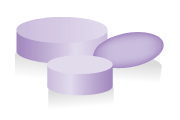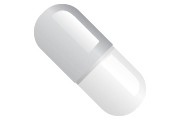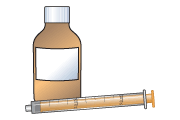Mycophenolate mofetil for nephrotic syndrome
This leaflet is for parents and carers about how to use this medicine in children. Our information may differ from that provided by the manufacturers, because their information usually relates to adults. Read this leaflet carefully. Keep it somewhere safe so that you can read it again.
Name of medicine
Mycophenolate mofetil (this may be shortened to MMF)
Brand name: CellCept
Why is it important for my child to take Mycophenolate?
Your doctor may recommend this treatment if your child’s nephrotic syndrome doesn’t get better with steroid treatment or keeps coming back. Mycophenolate should help to make the condition go into or stay in remission.
What is Mycophenolate available as?
- Capsules: 250 mg
- Tablets: 500 mg
- Liquid medicine: 1 g (1000 mg) in 5 mL
When should I give Mycophenolate
The Mycophenolate is usually given twice each day. Give one dose in the morning and one in the evening. Ideally these times are 10–12 hours apart. For example, this could be between 7am and 8am and between 7pm and 8pm.
Your doctor may tell you to give Mycophenolate once each day. This is usually in the morning.
Give the medicine at about the same time(s) each day so that this becomes part of your child’s daily routine, which will help you to remember.
How much should I give?
Your doctor will work out the amount of Mycophenolate (the dose) that is right for your child. The dose will be shown on the medicine label.
Your child’s doctor or nurse will measure how much protein is in their urine (wee), measure how well their kidneys are working and test their blood to make sure the dose is correct.
It is important that you follow your doctor’s instructions about how much to give.
How should I give Mycophenolate?

Tablets
- Tablets should be swallowed with a glass of water, squash or juice. Your child should not chew the tablet.

Capsules
- Capsules should be swallowed with a glass of water, squash or juice. Your child should not chew the capsule.

Liquid medicine
- Shake the medicine well.
- Measure out the right amount using an oral syringe or a medicine spoon. You can get these from your pharmacist. Do not use a kitchen teaspoon as it will not give the right amount.
When should the medicine start working?
It will take 2–4 weeks for mycophenolate to start working, although you will not see any difference in your child. The aim is to increase the time that your child’s nephrotic syndrome stays in remission, so it will take some time to know if it has helped. Your child may get side-effects from the medicine before it starts to work. It is important that they continue to take the medicine to give it time to work.
What if my child is sick (vomits)?
- If your child is sick less than 20 minutes after having a dose of Mycophenolate, give them the same dose again.
- If your child is sick more than 20 minutes after having a dose of Mycophenolate, you do not need to give them another dose. Wait until the next normal dose.
If your child is sick again, seek advice from your GP, pharmacist or hospital. They will decide what to do based on your child’s condition and the specific medicine involved.
What if I forget to give it?
If you usually give it twice a day: If you remember up to 4 hours after you should have given a dose, give your child the missed dose. For example, if you usually give a dose at about 7am, you can give the missed dose at any time up to 11am. If you remember after that time, do not give the missed dose. Give the next dose as usual.
If you usually give it once a day: Give the missed dose when you remember during the day, as long as this is at least 12 hours before the next dose is due. If you remember after this time, do not give the missed dose. Wait until the next usual dose.
Never give a double dose of Mycophenolate.
What if I give too much?
If you think you may have given your child too much Mycophenolate, contact your doctor or local NHS services (details at end of leaflet) or take your child to hospital. Have the medicine container or packaging with you, even if it is empty. This will be useful to the doctor.
It may be dangerous to give too much Mycophenolate.
Are there any possible side effects?
We use medicines to make our children better, but sometimes they have other effects that we don’t want (side effects).
Side effects you must do something about
If your child gets flu-like symptoms, sore throat, or unusual bleeding or bruising, contact your doctor, as there may be a problem with your child’s blood.
If your child gets a rash, has changes to their mood or eyesight, difficulty breathing or chest discomfort, swelling of the feet or ankles, or any difficulty urinating (doing a wee), contact your doctor straight away.
If your child gets flu-like symptoms, sore throat, fever (temperature above 38°C) or unusual bruises or bleeding, contact your doctor or take your child to hospital straight away, as there may be a problem with your child’s blood.
Other side-effects you need to know about
- Your child may get tremors, headache or dizziness and may have problems sleeping.
Your child may get diarrhoea or constipation (difficulty doing a poo), nausea (feel sick) and vomiting (being sick) when they first start taking Mycophenolate.
There may sometimes be other side effects that are not listed above. If you notice anything unusual and are concerned, contact your doctor. You can report any suspected side effects to a UK safety scheme at mhra.gov.uk/yellowcard
Can other medicines be given at the same time as Mycophenolate?
- You can give your child medicines that contain paracetamol or ibuprofen, unless your doctor has told you not to.
- Mycophenolate should not be taken with some medicines. Tell your doctor or pharmacist about any other medicines your child is taking before giving Mycophenolate.
Check with your doctor or pharmacist before giving any other medicines to your child. This includes herbal and complementary medicines.
Is there anything else I need to know about this medicine?
Mycophenolate may harm an unborn baby. If your daughter thinks that she may be pregnant she should tell her doctor before taking Mycophenolate.
If your child comes into contact with anyone who has measles, chickenpox or shingles, contact your doctor straight away, as they may need special preventative treatment.
- Your child’s skin may be more sensitive to sunlight while they are taking Mycophenolate. Keep them out of strong sun. When outdoors, they should wear a long-sleeved top, trousers and a hat and should use a high-factor sun screen (at least SPF 30).
- If your child is due to have an immunisation (vaccination), tell the nurse or doctor that they are taking Mycophenolate. Some vaccines should not be given.
- Mycophenolate affects your child’s immune system so they may get more infections such as chest infections, coughs and colds and they may take longer to fight these off. Try to keep your child away from people with serious infections if you can, although they can still go to school and nursery as usual.
- It is important that you wash your hands after handling Mycophenolate capsules, tablets or liquid as it can cause side-effects in people who handle it.
- If your daughter is sexually active, it is important that she uses contraception to prevent pregnancy and that she continues for at least 6 weeks after stopping Mycophenolate. If your daughter thinks she might be pregnant, she should consult her doctor as soon as possible.
- If your son is sexually active, it is essential that he and his partner use contraception to prevent pregnancy and that they continue for at least 90 days after stopping Mycophenolate.
General advice about medicines
- Only give this medicine to your child. Never give it to anyone else, even if their condition appears to be the same, as this could do harm.
- Make sure that you always have enough medicine. Order a new prescription at least 2 weeks before you will run out.
- Make sure that the medicines you have at home have not reached the ‘use by’ date on the packaging. Give old medicines to your pharmacist to dispose of.
- If you are not sure a medicine is working, contact your doctor but continue to give the medicine as usual in the meantime. Do not give extra doses, as you may do harm.
If you think someone else may have taken the medicine by accident, contact your doctor straight away.
Where should I keep this medicine?
- Keep the medicine in a cupboard, away from heat and direct sunlight.
- It does not need to be kept in the fridge.
- Some liquid medicine does not keep for long once opened. Write the date that you start it on the bottle and do not keep the medicine for longer than stated on the label.
- Make sure that children cannot see or reach the medicine.
- Keep the medicine in the container it came in.
Who to contact for more information?
Your doctor, pharmacist or nurse will be able to give you more information about Mycophenolate and about other medicines used to treat nephrotic syndrome.
England: NHS 111
Tel 111
www.nhs.ukScotland: NHS 24
Tel 111
www.nhs24.scotNorthern Ireland: NI Direct
Wales: NHS 111 Wales
Tel 111
www.111.wales.nhs.ukinfoKID
Kidney Care UK
01420 541424
www.kidneycareuk.org/National Kidney Federation
0800 169 09 36
www.kidney.org.uk/Nephrotic Syndrome Trust (NeST)
Copyright disclaimer
Version [2]. © NPPG, RCPCH and WellChild, all rights reserved. Review by April 2022.
The primary source for the information in this leaflet is the British National Formulary for Children. For details on any other sources used for this leaflet, please contact us through our website, www.medicinesforchildren.org.uk.
We take great care to make sure that the information in this leaflet is correct and up-to-date. However, medicines can be used in different ways for different patients. It is important that you ask the advice of your doctor or pharmacist if you are not sure about something. This leaflet is about the use of these medicines in the UK, and may not apply to other countries. The Royal College of Paediatrics and Child Health (RCPCH), the Neonatal and Paediatric Pharmacists Group (NPPG), WellChild and the contributors and editors cannot be held responsible for the accuracy of information, omissions of information, or any actions that may be taken as a consequence of reading this leaflet.
